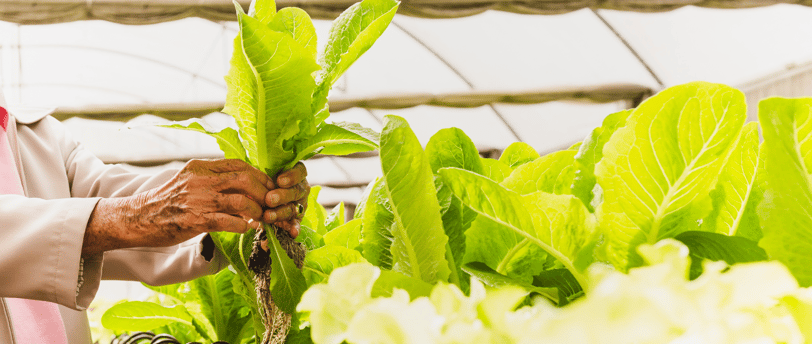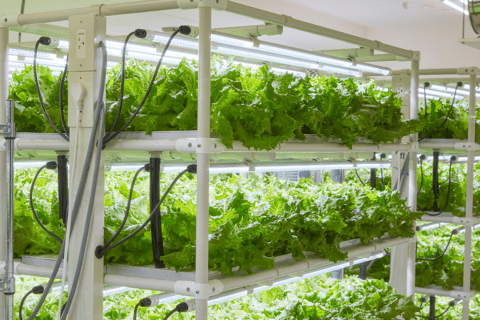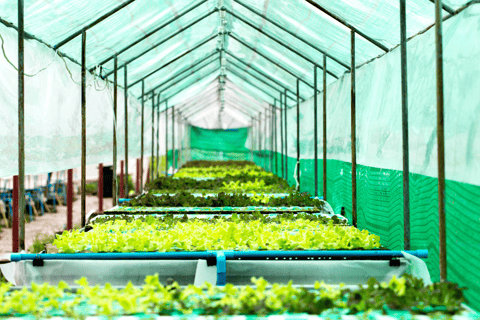Exploring Hydroponics Farming Opportunities in India
India's agricultural landscape is evolving, and innovative farming methods are gaining traction. One such method is hydroponics farming, a soil-less cultivation technique that offers unique opportunities for sustainable and efficient crop production. In this blog post, we'll delve into the world of hydroponics and explore the potential it holds for farming in India.
HYDROPONICS
@farmtech
8/20/20232 min read


Understanding Hydroponics:
Hydroponics is a farming technique that involves growing plants without soil, using nutrient-rich water solutions instead. This method allows plants to receive the essential nutrients they need directly through water, leading to faster growth, increased yields, and reduced water usage. In a country like India, where water scarcity is a concern, hydroponics presents an exciting solution
Advantages of Hydroponics Farming:
Water Efficiency: Hydroponics uses significantly less water compared to traditional soil-based farming, making it an ideal choice for regions with limited water resources.
Year-Round Cultivation: Hydroponics enables year-round cultivation regardless of external weather conditions, making it especially advantageous for areas with extreme climates.
Higher Yields: Plants grown hydroponically tend to have faster growth rates and increased yields due to optimal nutrient availability and controlled environmental factors.
Space Efficiency: Hydroponic systems can be set up vertically, utilizing vertical space efficiently, which is crucial in densely populated areas.
Reduced Soil Erosion and Pests: Since hydroponics eliminates the need for soil, issues related to soil erosion and certain pests are minimized.
Hydroponics Opportunities in India:
Urban Farming: With the increasing urbanization of India, hydroponics offers the possibility of growing fresh produce within cities, reducing the need for long transportation distances.
High-Value Crops: Hydroponics is suitable for growing high-value crops such as herbs, lettuce, strawberries, and tomatoes, which have a strong demand in India's growing market for premium produce.
Educational Institutions: Hydroponics can be integrated into school curricula to educate students about sustainable agriculture and modern farming techniques.
Research and Development: India's agricultural research institutions can explore hydroponics to optimize crop production and address specific challenges like salinity and water scarcity.
Entrepreneurship and Startups: Entrepreneurs can seize the opportunity to establish hydroponic farms and supply high-quality produce to local markets, restaurants, and supermarkets.
Challenges and Considerations:
Initial Investment: Setting up a hydroponics system requires an upfront investment in infrastructure, technology, and training.
Knowledge and Expertise: Farmers need to acquire specialized knowledge about hydroponics systems, nutrient solutions, and plant care.
Energy Consumption: Depending on the setup, hydroponic systems can require energy-intensive components like grow lights and water pumps.
Market Acceptance: Educating consumers about the benefits of hydroponically grown produce is essential to create a demand in the market.
Conclusion: Hydroponics farming presents a promising avenue for agricultural advancement in India. By addressing water scarcity, increasing yield potential, and enabling urban farming, hydroponics can contribute to a more sustainable and resilient food production system. As India continues its journey towards modernizing its agriculture sector, embracing hydroponics could pave the way for a greener and more prosperous future. Whether you're an aspiring farmer, entrepreneur, or simply interested in sustainable practices, hydroponics offers exciting possibilities worth exploring in the Indian agricultural landscape.




